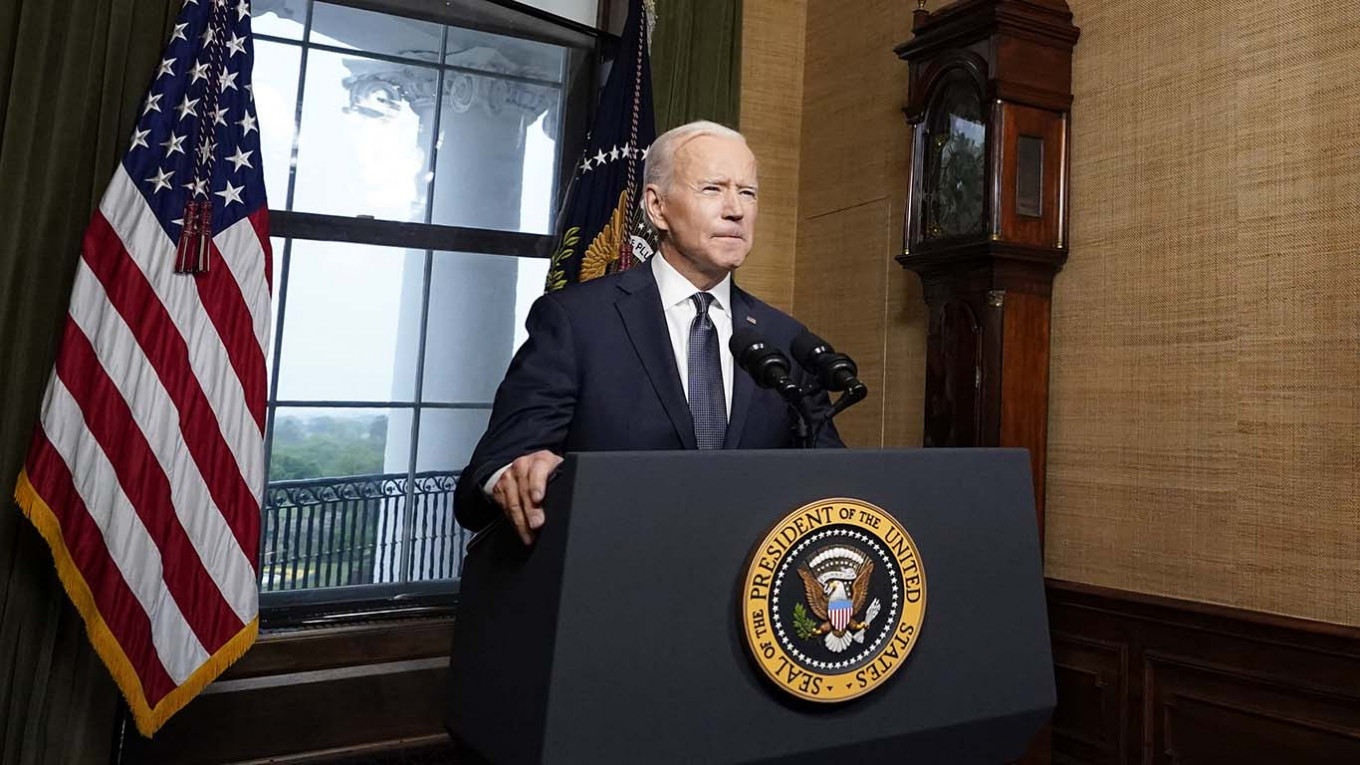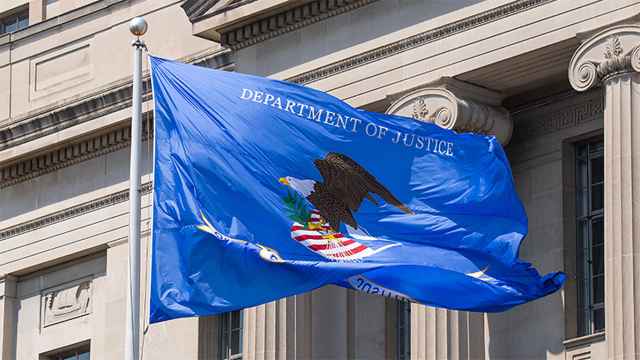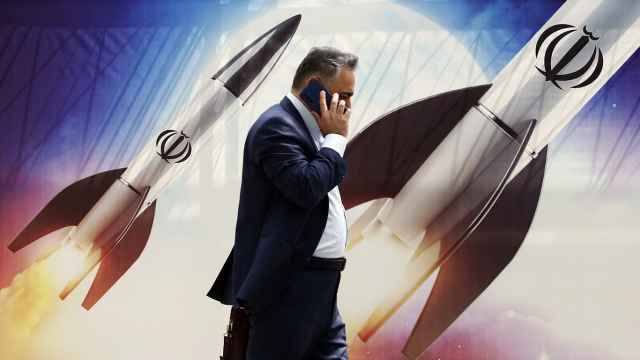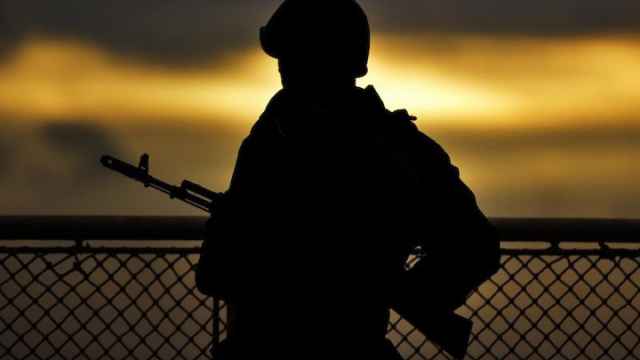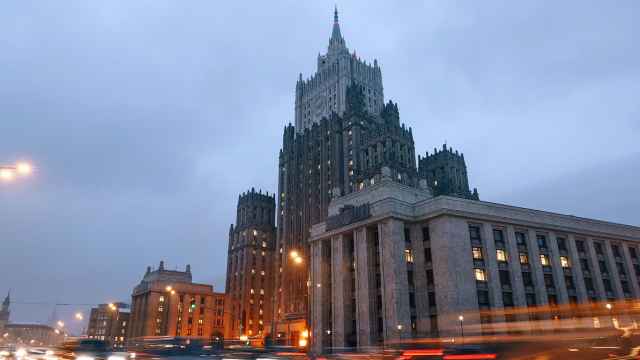The U.S. on Thursday hit Russia with its toughest set of sanctions since 2018 to punish the Russian government for a host of infringements.
This is the first sanctions action against Russia taken by new president Joe Biden and comes days after he suggested a face-to-face summit with his Russian counterpart Vladimir Putin, as a military stand-off in eastern Ukraine continues to simmer.
U.S. Secretary of State Antony Blinken said the sanctions “are intended to hold Russia to account for its reckless actions.”
Treasury Secretary Janet Yellen called the new sanctions “sweeping” and said they were introduced to “confront Russia’s continued and growing malign behavior … and impose costs on the Russian government for its unacceptable conduct, including by limiting Russia’s ability to finance its activities and by targeting Russia’s malicious and disruptive cyber capabilities.”
What has the U.S. announced?
- U.S. financial institutions will be banned from taking part in new Russian government bond auctions from June 14.
- The U.S. expelled 10 diplomats from the Russian embassy in Washington D.C., a group it alleges “includes representatives of Russian intelligence services.”
- The U.S. sanctioned 32 other individuals and legal entities it deemed responsible for “carrying out Russian government-directed attempts to influence the 2020 U.S. presidential election, and other acts of disinformation and interference.” They will not be able to travel to the U.S. and any assets based in the U.S. will be frozen.
- Among the sanctioned outfits were a host of entities controlled by “Putin’s Chef” Yevgeny Prigozhin, who was recently added to the FBI’s wanted list and is linked to the Wagner private militia group which has been deployed to various conflicts in Africa, Syria and eastern Ukraine.
- Three companies involved in constructing the Kerch bridge, which links Crimea to Russia were sanctioned, as well as five Crimean government officials, including the head of the FSB security agency and the Investigative Committee on the peninsula.
- Six Russian technology companies with links to Russia’s Defense Ministry were also sanctioned for “developing tools and infrastructure to facilitate malicious cyber activities.”
- The U.S. “formally named” Russia’s foreign intelligence service (SVR) — “also known as APT 29, Cozy Bear, and The Dukes” — as responsible for the SolarWinds cyber attack, described by the president of Microsoft as the most sophisticated and advanced hack in history. It follows earlier official comments that the U.S. believed Russia was “likely responsible” for the cyber attack.
- No new measures against the controversial Nord Stream 2 pipeline were announced.
Assets of sanctioned individuals which are located in the U.S. are automatically frozen and they are barred from travelling to the U.S.
American firms and individuals are also barred from conducting business transactions with people and businesses on the sanctions list or any companies or entities they control.
What is the reason?
The sanctions relate to a wide range of alleged Russian transgressions, including those the U.S. says were undertaken during the Trump administration.
- The U.S. said its actions were in response to Russia’s “efforts to undermine the conduct of free and fair democratic elections and democratic institutions in the United States ... engage in and facilitate malicious cyber activities against the United States ... foster and use transnational corruption to influence foreign governments … pursue extraterritorial activities targeting dissidents or journalists, undermine security in countries and regions important to United States national security and violate well-established principles of international law.”
- The U.S. said the sanctions demonstrate it “will impose costs in a strategic and economically impactful manner on Russia if it continues or escalates its destabilizing international actions.”
- Specifically, the sanctions are tied to Russia’s annexation of Crimea in 2014, interference in the 2020 U.S. election and the cyber attack on SolarWinds, although they come against a background of increased hostility between Russia and the West over a wide range of other issues.
- The U.S. explicitly mentioned the poisoning and jailing of Kremlin critic Alexei Navalny in its statement. More sanctions are expected to be handed down later this year in response to what the U.S. has determined was Russia’s illegal use of chemical weapons in poisoning Navalny with a nerve agent last August.
- In their explanation of the new sanctions, U.S. officials also mentioned they were “responding” to reports that Russia had offered bounties to local fighters to kill American soldiers in Afghanistan. No specific measures were levied in response, but the U.S. said it was dealing with the reports through “diplomatic, military and intelligence channels,” and the recognition that it takes the reports seriously marks a reversal from the Trump administration, who failed to address them publicly.
What impact will it have?
This is the most wide-ranging and potentially hard-hitting round of sanctions introduced against Russia since 2018.
However, Russia has rolled out a host of sanctions-proofing measures since it was first punished by the international community in 2014 for the annexation of Crimea, and the economy is significantly more shielded than during previous rounds of sanctions.
Sanctioned individuals and businesses are unlikely to have any significant assets vulnerable to U.S. freezes, and the blocks on Russia’s sovereign debt fall short of the so-called “nuclear option” of a complete ban on Western financial outfits having anything to do with Russian state debt.
There were also no measures targeting Russia’s oligarchs and business elites, as Navalny and his team have called for the west to introduce.
- The ruble fell 2% against the U.S. dollar and the euro when news first emerged Thursday morning that the U.S. was about to announce a far-reaching sanctions package. The currency slightly recovered, but is still trading near five-month lows at 76.7 against the dollar, and 91.7 against the euro.
- The block on sovereign debt has been watered down from other possibly stronger options that could have been announced, said Maria Shagina, a member of the Geneva International Sanctions Network. It targets “the new issuance of bonds only,” she said, and also takes a “narrow definition” of what qualifies as sovereign debt, not covering Russian state-controlled companies, for instance and only covering primary issues. “The sanctions target both ruble & non-ruble debt — slightly different from Trump's sanctions — but can be circumvented through the secondary market,” she added.
- In any case, Russia is not reliant on international investors to raise capital. In 2020, non-residents purchased only $5 billion of the $73 billion issued in government bonds, and their share of outstanding government debt has fallen to its lowest level in five years, below 20%.
- “Fundamentally, a ban on foreign participation in new bond issues is not a threat to Russia’s financial stability as the state debt is low, around 20% GDP, [and] local banks with $1.5 trillion of assets have the balance sheet capacity to absorb the Finance Ministry’s placement appetite,” said ING’s chief Russia economist Dmitry Dolgin.
- “The U.S. sanctions on primary [debt] is an important warning shot, but [they are] clearly not ready to give away the last chips,” said Elina Ribakova, deputy chief economist at the Institute for International Finance, referencing possible stronger moves such as a ban on all buying and selling of government debt, as well as targeting Russia’s participation in the Swift international payments system.
Several U.S.-based analysts pointed to the new sanctions’ broad scope and highlighted that this was a “first move” by Biden, upon which tougher sanctions could be added in the future.
- “Today’s sanctions actions leave room for escalation,” said Daniel Fried, a former U.S. assistant secretary of state for Europe and Eurasia. For instance, while there were no new sanctions on Nord Stream 2, the executive order signed by Biden says the U.S. will levy new sanctions on Russia if it disrupts energy supplies to Europe, the Caucasus or Central Asia.
- “There’s more work to be done — as always, with tough challenges — but this is the tone-setter for a whole-of-government approach going after the true threat that Putin represents,” said Brian O'Toole, a senior fellow at the Atlantic Council and former adviser to the U.S. Treasury’s Office of Foreign Assets Control (OFAC), the body responsible for enforcing U.S. sanctions.
- Others noted that by specifically tying the sanctions to a wide range of alleged Russian transgressions, the sanctions will also be harder to unwind, as Biden has made them contingent on seeing drastic change in Russia’s foreign policy actions.
How has Russia reacted?
- Russia has hit out at the imposition of sanctions, warning their introduction is not conducive to the proposed Biden-Putin summit going ahead in the near future.
- Russia immediately summoned U.S. Ambassador John Sullivan to the Foreign Ministry for what spokesperson Maria Zaharova said would be “a difficult conversation.”
- Russia typically responds to diplomatic expulsions in a tit-for-tat move, and is expected to expel 10 American diplomats from the U.S. embassy in retaliation. The Foreign Ministry said Thursday a Russian response was “inevitable.”
- Russia's foreign intelligence service, the SVR, dismissed U.S. claims that it was involved in cyber attacks. "We will only say that reading this nonsense is an occupation of little interest," the SVR said in a statement.
- Yevgeny Prigozhin said he was being sanctioned for his “humanitarian actions” in Africa.
A Message from The Moscow Times:
Dear readers,
We are facing unprecedented challenges. Russia's Prosecutor General's Office has designated The Moscow Times as an "undesirable" organization, criminalizing our work and putting our staff at risk of prosecution. This follows our earlier unjust labeling as a "foreign agent."
These actions are direct attempts to silence independent journalism in Russia. The authorities claim our work "discredits the decisions of the Russian leadership." We see things differently: we strive to provide accurate, unbiased reporting on Russia.
We, the journalists of The Moscow Times, refuse to be silenced. But to continue our work, we need your help.
Your support, no matter how small, makes a world of difference. If you can, please support us monthly starting from just $2. It's quick to set up, and every contribution makes a significant impact.
By supporting The Moscow Times, you're defending open, independent journalism in the face of repression. Thank you for standing with us.
Remind me later.



